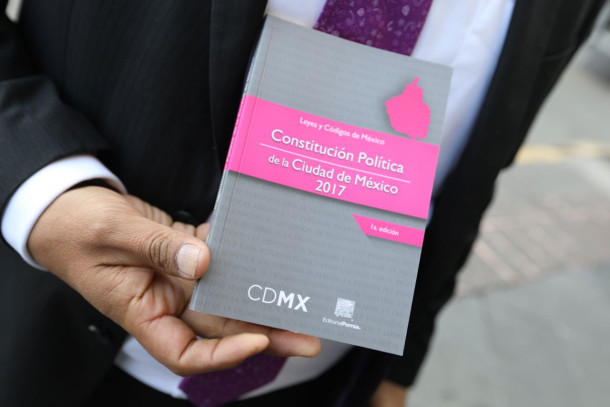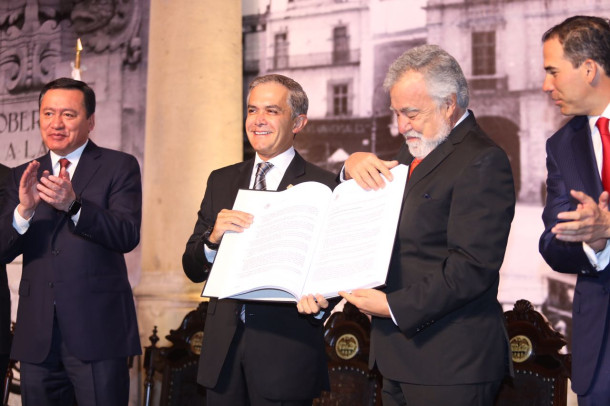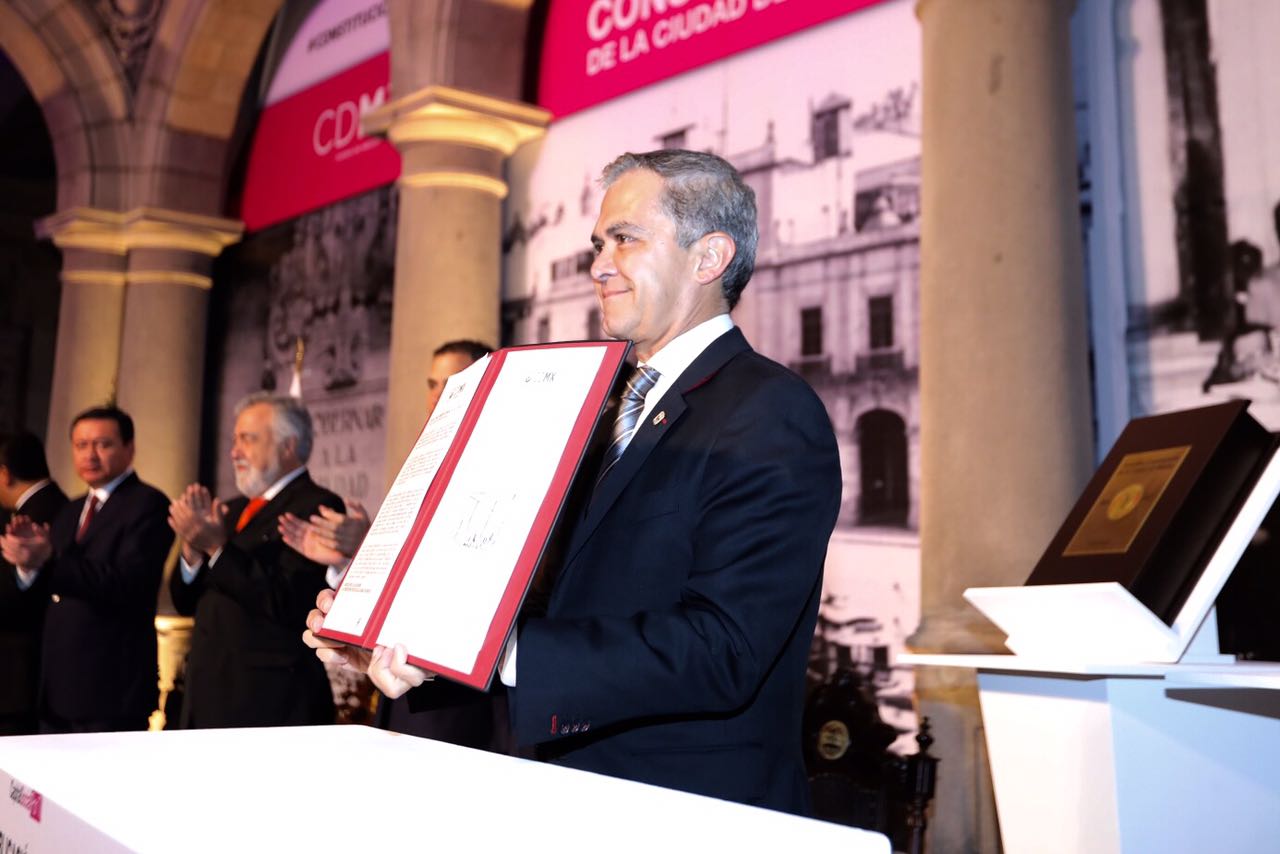 CDMX
CDMX
 CDMX
CDMX
THE FIRST CONSTITUTION OF MEXICO CITY
Seizing the occasion to celebrate our member of the month, Mariana Flores, International Affairs Adviser of Mexico City and Metropolis Regional Secretary for North America, presents an article about the historic moment that her metropolis is going through.
Mexico City, a Metropolis founding member, is going through a historic moment. On February 5, date which coincides with the 100th anniversary of the Political Constitution of the Mexican United States, the Head of Government, Miguel Ángel Mancera, enacted the first constitution of the Mexican capital. In this article, I highlight the points of the document that match the values that we seek among Metropolis members.
In addition to the political, financial and social implications of the entry into force of this instrument - scheduled for September 17, 2018 - the new Constitution is, above all, a recognition of the autonomy of its city and its citizens. We share with Metropolis the values of inclusion and diversity, that the association recognized in the the call launched the past February 3. In this sense, the new Constitution affirms that the capital of the country "is intercultural, and has multilingual, multi-ethnic and multicultural composition, based on its inhabitants".
The Constitution also integrates a metropolitan vision in fields such as land use planning, sustainable water management, mobility, economic development with sustainability and solidarity, among others. This Constitution foresees the participation in the development of instruments with a territorial vision that includes all the municipalities encompassed by the metropolis.
Participatory exercise
One of the features of the process of formulation of the text was the integration of the voices of the inhabitants of the city at all stages. The Head of Government, responsible for delivering the first draft of the text to the Constituent Assembly, gathered a plural editorial group, composed of 28 citizens who are recognized for their roles in the political, academic, cultural and social development of the city.
For the duration of this work, we collected the voices of citizens through various participatory processes: dialog round tables, thematic forums and seminars, public debates, digital platforms, as well as mobile kiosks to bring these platforms to citizens, among others. The platform change.org joined this process, enabling citizens to make proposals for drafting the project; the people whose requests have exceeded 50 thousand signatures had the opportunity to present their initiatives to the Head of Government.
Once the proposal was submitted to the Constituent Assembly (60 of the 100 assembly members were elected by popular vote), the channels of citizen participation remained open. At this stage, the international community, including the United Nations agencies accredited in Mexico, were also invited to contribute to the discussion in order to enrich the final version of the text.
International component
Today there is no doubt of the fundamental role of cities in the search for solutions to major global challenges. This has been proven by the active participation of local authorities in processes such as Habitat III. For this reason, the new Constitution of Mexico City incorporates some of the components and principles that have been adopted in the international agenda in recent months.
One example is the article 12, dedicated to the Right to the City, which is defined as “the use and the full and equitable enjoyment of the city, founded on principles of social justice, democracy, participation, equality, sustainability, respect for cultural diversity, nature and the environment”. This was one of the themes that generated the most debate during the process of drafting and negotiation of the New Urban Agenda.
In response to the importance of the internationalization strategy of Mexico City, the article 20, "Global City", recognizes international action as a public policy and outlines the values that characterize it. This is unprecedented in the legal framework of the country's capital and will allow, through the secondary laws, to provide the mechanisms and resources necessary for its proper implementation. Through its international action, Mexico City “reaffirms its historical commitment to peace, solidarity, hospital and asylum”. In addition, the will to promote "its presence in the world and its insertion in the global system of cities and local governments networks".
The collaborative work through networks of cities is an activity that has been privileged in the internationalization strategy of Mexico City. An example of this is our active participation in Metropolis, and also in the coordination of cooperation spaces in the Euro-Latin Alliance for Cooperation between Cities (AL-LAS), United Cities and Local Governments (UCLG) and the Global Fund for Cities Development (FMDV).
Mexico City will continue strengthening its participation in Metropolis and contributing to consolidate spaces of cooperation between cities.

Head of Government Miguel Ángel Mancera at the act of enactment of the first Constitution of Mexico City, on February 5, 2017.
The full text of the Political Constitution of Mexico City is available at http://www.cdmx.gob.mx/constitucion (in Spanish)
Participatory platform www.constitucion.cdmx.gob.mx

